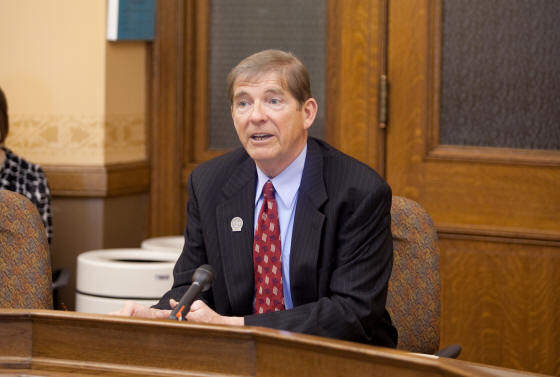Getting Tough On Drunk Driving
Legislators push to make fourth OWI a felony. But the state corrections costs are high.
It’s a simple idea: Make a fourth drunk driving conviction a felony. Right now, it’s only a felony if it’s the fourth OWI (Operating While Intoxicated) conviction within five years.
If you think the change is a good idea, you’re not alone. The state Senate recently passed that provision, sending it to the full Assembly. The bill (SB455) got a 9-0 recommendation by a state Assembly committee. If it is not passed by the Assembly in the next few weeks, it dies.
After the Senate vote, the bill’s chief Senate sponsor, Republican Sen. Alberta Darling, issued this statement: “If our laws treat repeat drunk driving seriously, hopefully people will start to get help and not repeat their mistakes. Our laws haven’t been tough enough.”
But there’s a controversy over what the state Department of Corrections (DOC) says the fiscal fallout would be if the bill becomes law – between $97.9 million and $129 million more per year in costs and, eventually, 3,663 more prison inmates.
No way, insisted Republican Rep. Jim Ott, the chief Assembly sponsor of the bill. “Those numbers are hard to believe. We’re just upping the felony category.”
Here’s the breakdown of the DOC numbers:
*Because SB455 would also lengthen maximum prison sentences for those with five or more OWI convictions, DOC estimates that it could eventually put 3,663 more inmates in prison – a 16 percent increase from the 22,309 inmates on Jan. 22.
*Other new, expensive costs include building new prisons or renting beds, new specialized treatment facilities and hiring more supervisors and alcohol-treatment specialists.
*If the additional cost was $129 million per year, that would be a 10.5 percent increase in DOC’s annual budget.
That’s money state government doesn’t have. The latest revenue projections said tax collections will be $94 million less than projected when the two-year budget ends in mid-2017.
So how can SB455 cost so much?
First, repeat-offense OWI is all too common in Wisconsin. In 2013, DOC told legislators, “There were 1,039 convictions for fourth offense OWI, 665 convictions for fifth or sixth offense OWI, 145 convictions for seventh, eighth or ninth offense OWI, and nine convictions for 10 offense OWI or higher.”
If every fourth offense OWI was a felony, DOC would see a first-year increase in inmates of 1,018. But, “Once populations are fully annualized (DOC) would see a permanent increase to current populations of 3,663 additional inmates,” its report noted
That 3,663 number could be lower, depending on judges’ sentences. But, DOC officials added, “The sentencing practices of judges cannot be predicted.”
DOC also said there are no beds for the first 1,018 new inmates. “DOC is struggling to find space for the current population, as it is over its budgeted capacity for its facilities.”
DOC now has one Drug Abuse Correctional Center (DACC) that works with drug- and alcohol-addicted inmates, so the agency said it could need three more just to deal with the first-year influx of 1,018. Each 300-bed DACC costs about $13.1 million.
DOC said it could contract with local governments, nonprofits and private businesses to hold addicted inmates. That cost was estimated at about $68.8 million more per year.
DOC could also need a minimum of 57 new social workers, supervisors and treatment specialists, at a cost of about $4.9 million per year.
But not all those new OWI felons would be in prison, officials said. Four years after SB544 became law, DOC would have to supervise 1,093 more OWI inmates in residential settings. That would require hiring 15 more professionals, and electronic monitoring those inmates for a year at a daily cost of between $2.40 and $7.61 per inmate, the agency estimated.
But Ott is undeterred. He vowed to push as hard as he can for an Assembly vote on SB455, saying he hasn’t heard any opposition to it. “It could possibly get a 100 percent vote.”
In a state like Wisconsin, that’s often been accused of dragging its feet on OWI enforcement, that would be remarkable.
Steven Walters is a senior producer for the nonprofit public affairs channel WisconsinEye. Contact him at stevenscwalters@gmail.com
The State of Politics
-
RNC Brings Fame to Gen Z Party Leader
 Jul 15th, 2024 by Steven Walters
Jul 15th, 2024 by Steven Walters
-
Wisconsin’s Republican Roots Run Deep
 Jul 8th, 2024 by Steven Walters
Jul 8th, 2024 by Steven Walters
-
Feuding Supreme Court Justices Need a Break
 Jul 1st, 2024 by Steven Walters
Jul 1st, 2024 by Steven Walters
Transportation
-
MCTS Adds 28 New Buses
 Jul 13th, 2024 by Graham Kilmer
Jul 13th, 2024 by Graham Kilmer
-
MCTS Designing New Bus Shelters
 Jul 10th, 2024 by Graham Kilmer
Jul 10th, 2024 by Graham Kilmer
-
MCTS Updates RNC Bus Detours To Better Serve Downtown, Riders
 Jul 9th, 2024 by Jeramey Jannene
Jul 9th, 2024 by Jeramey Jannene























I really appreciate Ott and Darling’s persistence on this issue. I wish more state legislators and the governor spent more time talking about Wisconsin’s serious drinking and drunk driving problems. It seems like nothing will ever get accomplished though, because people make a fuss about the costs (meaning they don’t have to do anything) and so many seem to be in denial about the severity of the problems because of the role alcohol plays in everyday life here. I was at Brewers On Deck yesterday. The amount of people drinking at 10AM was unbelievable, and most of them had kids with them.
Some people are worried about the costs of these additional 3,663 people who would see incarceration time. I’m worried about the social costs of these 3,663 people being out driving on our streets intoxicated. These people either have an alcohol addiction or do not respect the consequences of driving under the influence. Either way, they need treatment or some real consequences (other than killing innocent victims).
I can’t believe we as a state are debating 4th OWI being a felony… why not 3rd or even 2nd??
Amen AG. Well put. On this we are in total agreement.
Agree with above commenters. One is bad. Two should be jail. Sorry. You’re too dangerous to be on the roads.
Oh, for cripes. Only #4 is a felony in Wisconsin, and only if within a five-year period?
I never quite goth the depth of Wisconsin’s “drinking culture” until I move away three decades ago. While the state is not alone in this, people need to get serious about this and this would be such a minor step. I’m all for a cocktail or three, but the State of Wisconsin needs an intervention!